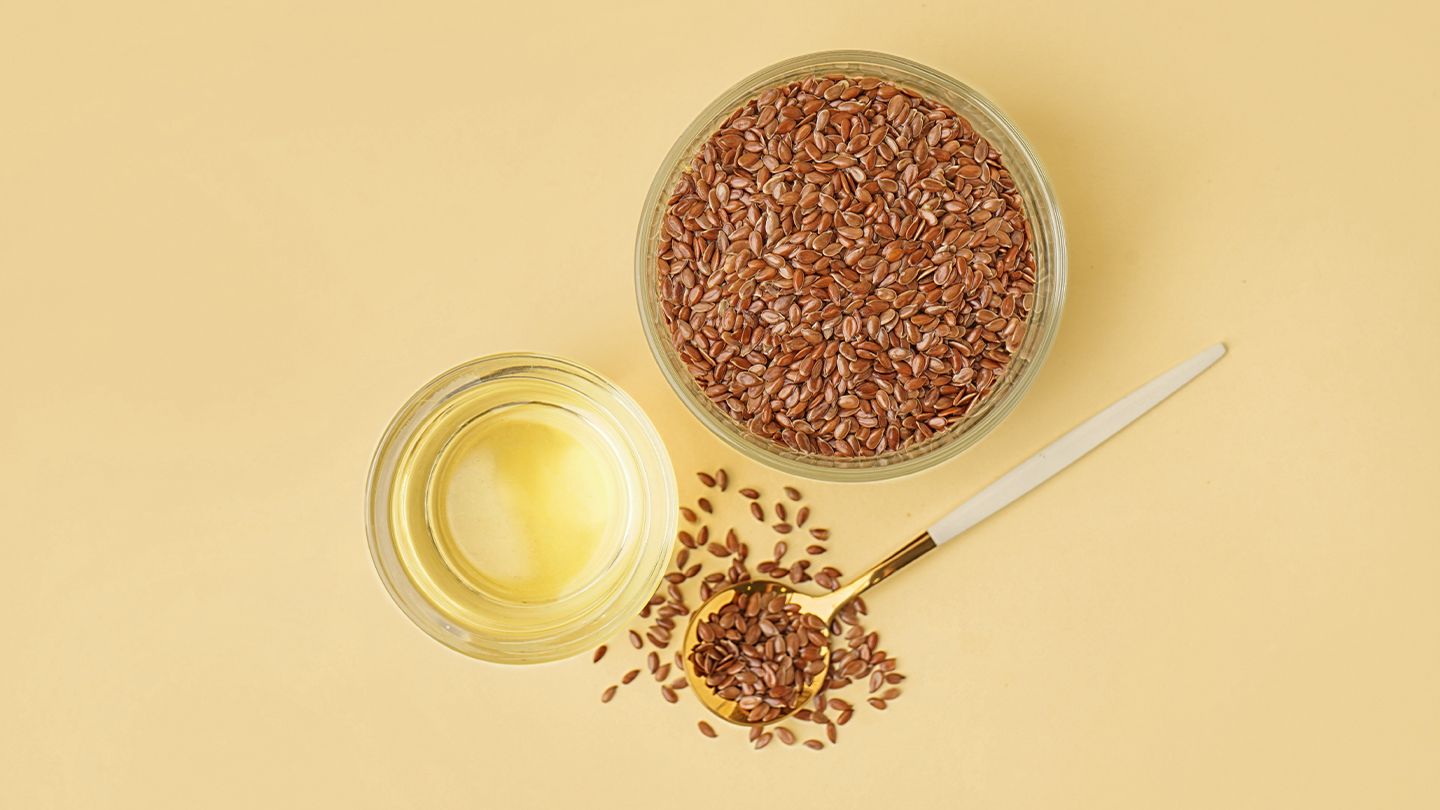Extracted from the flax plant, flaxseed oil is known for its anti-inflammatory and heart-healthy effects, according to Cleveland Clinic . There isn’t a dietary guideline for how much flaxseed oil you should use daily to reap its benefits. But this oil is an excellent source of omega-3 fatty acid, and there are recommendations as to how much omega-3 you should aim to get each day, according to the National Institutes of Health Office of Dietary Supplements (ODS) .
Flaxseed Oil and Alpha-Linolenic Acid Flaxseed is one of the richest plant sources of an omega-3 fatty acid called alpha-linolenic acid (ALA), according to Cleveland Clinic. The ALA content of flaxseed oil is mainly responsible for many of the plant’s associated health benefits. ALA’s anti-inflammatory properties help protect the body from a host of inflammation-based chronic illnesses, including heart disease, metabolic syndrome, obesity, and type 2 diabetes, according to a study published in January 2022 in the journal Phytotherapy Research . Your body can convert ALA into other the other main omega-3-fatty acids: eicosapentaenoic acid (EPA) and docosahexaenoic acid (DHA). But only about 15 percent of the ALA you consume gets converted into these usable omega-3s, the rest of which your body uses for energy, according to the Office of Dietary Supplements. The National Academy of Medicine recommends that adult women should aim to consume around 1,100 milligrams (mg) of ALA each day, while men should aim to consume around 1,600 mg, according to the ODS. One tablespoon (tbsp) of flaxseed oil provides 730 to 1,095 usable mg of ALA, which is sufficient as long as you eat other omega-3-rich foods, too, according to Cleveland Clinic.
Flaxseed Oil and Lignans Flaxseeds are also the richest dietary source of lignans, compounds that act as both antioxidants and phytoestrogens in your body, according to Oregon State University . In fact, flaxseeds contain up to 800 times more lignans than other plant foods, according to Cleveland Clinic. Limited research suggests that lignans, which remain in flaxseed oil extracted from the seeds, may be linked with lower risks of cardiovascular disease, hormone-associated cancers, type 2 diabetes, and osteoporosis, according to Oregon State University.
Flaxseed Oil Nutrition In addition to ALA and lignans, 1 tbsp of flaxseed oil contains, according to the University of Rochester Medical Center : 120 calories 13.6 grams (g) of total fat 2.8 g of monounsaturated fat 9 g of polyunsaturated fat 1.3 g of saturated fat While flaxseed oil is an excellent source of ALA, it shouldn’t be your sole source of omega-3 fatty acids, because your body needs EPA and DHA as well, according to the ODS.
Flaxseed Oil Supplements and Diet Tips There are several ways to work flaxseed oil into your day. You can take flaxseed oil capsules, which have varying amounts of oil per product and recommended dosages ranging from one to three capsules per day, according to Cleveland Clinic. You can also forgo a supplement and include flaxseed oil in your diet directly. Some ways to do that are: Drizzle it on top of salads. Add it to smoothies or yogurt. Stir it into vegetable soups right before eating. About 1 tbsp per day is enough for most people, according to Cleveland Clinic. According to the ODS , you can meet your remaining ALA needs, as well as your needs for EPA and DHA, by combining flaxseed oil or a flaxseed oil supplement with other omega-3-rich foods, such as: Chia seeds Herring Mackerel Salmon Sardines Tuna Walnuts Since flaxseed oil is particularly susceptible to oxidation, it can go rancid quickly, according to Cleveland Clinic. To increase its shelf life, store it in the refrigerator or in another cool, dark place (like a pantry) instead of right next to the stove. While you can add flaxseed oil to your food dishes after cooking them, avoid cooking flaxseed oil directly. It has a very low smoke point, and heating it can break down the fatty acids you’re trying to consume, according to Cleveland Clinic.
A Word of Caution Flaxseed oil offers lots of potential health benefits, but it’s not safe for everyone to take flaxseed oil supplements or a high flaxseed–oil dosage, according to Mayo Clinic . Flaxseed oil has the potential to decrease blood clotting. So, if you’re already taking blood-thinning medications like anticoagulants or antiplatelet medications, you could develop a higher risk of uncontrollable bleeding if you also consume flaxseed oil. Due to its effects on blood clotting, it’s also a good idea to avoid taking flaxseed oil at least two weeks before any type of surgery. And let your surgeon know that it’s part of your typical wellness regimen. Flaxseed oil can lower blood pressure as well. That can cause problems when taken along with blood pressure-lowering medications, or other supplements or herbs that lower blood pressure. Flaxseed oil can also lower blood sugar. So, people taking insulin or other blood sugar-lowering medications for conditions like diabetes need to be particularly cautious. Flaxseed oil may reduce the effectiveness of oral contraceptives and estrogen replacement therapies as well. Talk with your doctor before adding flaxseed oil to your daily diet.
Read the full article here
Leave a comment




